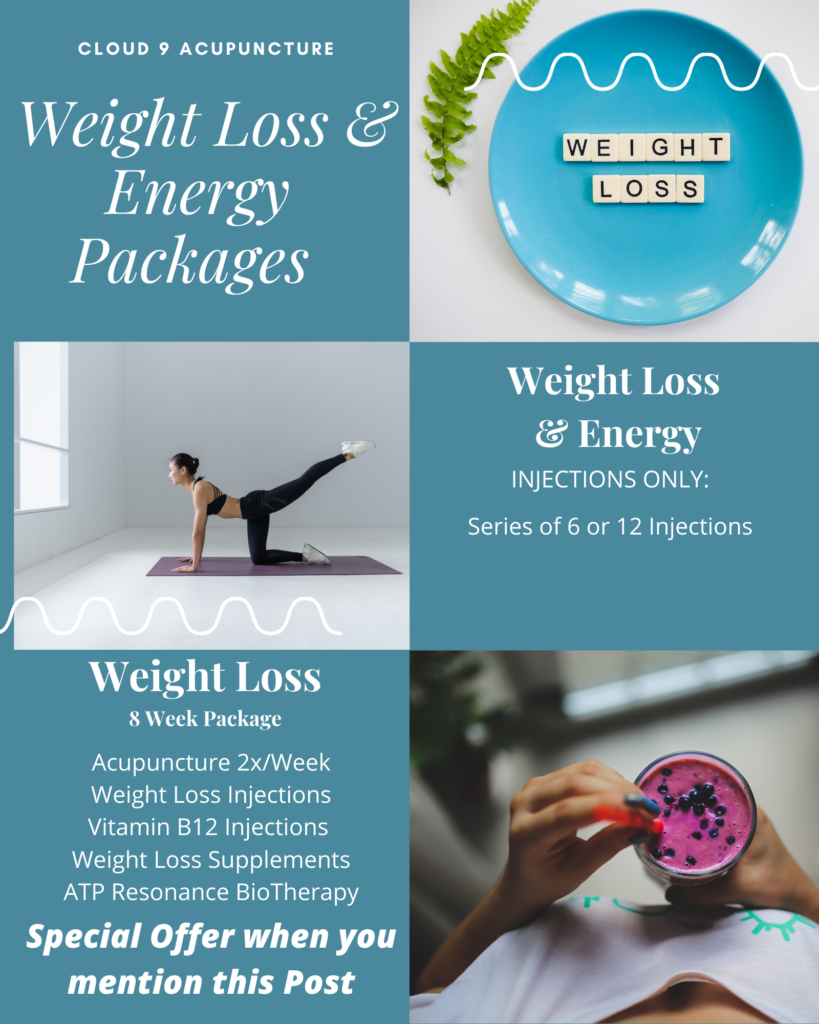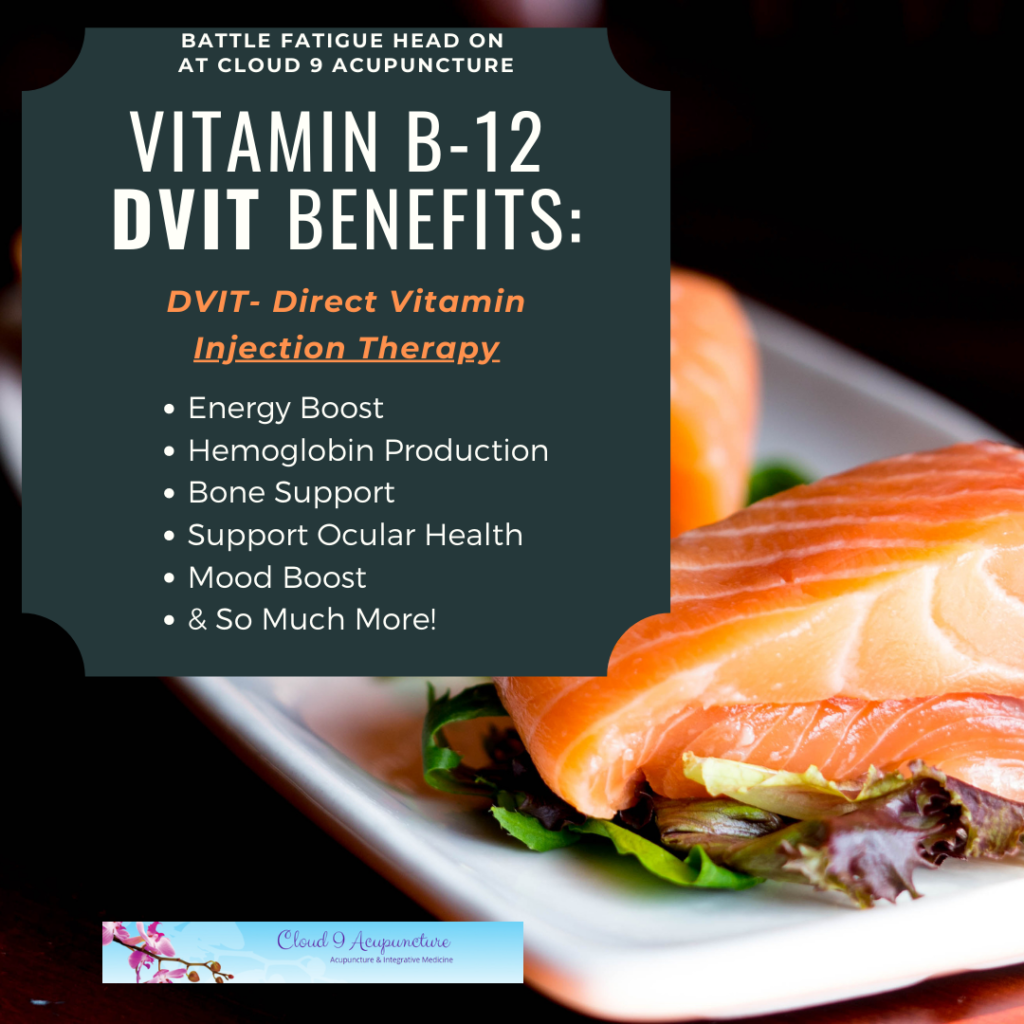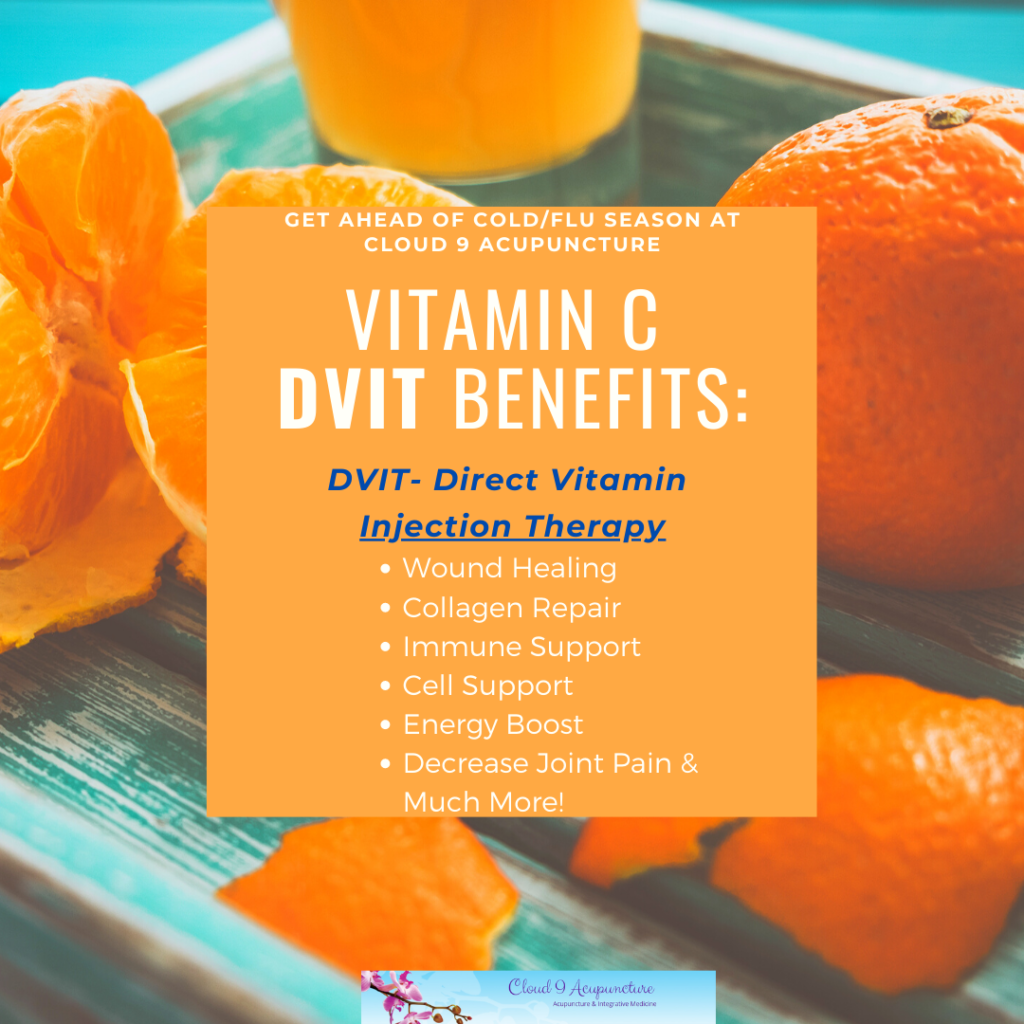- Cloud 9 Acupuncture & Integrative Medicine22 West Padonia Rd. Suite A-203
Timonium, MD 21093 - By Appointment Only
-
Latest Articles:
- • Energy-Saving and Safety Tips for Winter Proofing Your Home •
- • Winter Wellness: Mental Health Tips for Beating the Winter Blues •
- • 10 Cozy Winter Activities to Enjoy Indoors •
Diet
Weight Gain & Fatigue? We can help! (it is not your fault)
Sometimes, we just need a little help.
For most of us, this year has been the most stressful -possibly ever. If you have noticed gaining weight during this Pandemic, it is not your fault. Let us repeat: It is Not. Your. Fault.
Stress creates Cortisol levels to spike. Cortisol is often discussed as a big factor in making it easy to gain weight, and difficult to lose weight. For most of us, our Fight or Flight response is constantly running, at an all time high due to the circumstances of 2020.
Now, add in cold weather creeping in – a trigger for many of us to gain weight. Not to mention the holiday season (whatever that will look like) is coming soon. Don’t panic. Just know that we are here for you if you want a little help!
We have effortless ways to support patients who are feeling a lack of control and noticing the scale going up. From a Weight Loss Injection of vitamins and minerals, and all natural supplements, and acupuncture, we’ll have you feeling better in no time.
Questions? Give us a Call at 410-847-4766

Why You May Need Vit. D Injections

Did You Know? . . .
- It was clinically observed that a significant number of fertility couples who experienced delays in trying to conceive naturally also had low Vitamin D levels, first published online 2017 Jun 16, referenced research study at https://www.ncbi.nlm.nih.gov/pmc/articles/PMC5545066/
- As of Sept. 3, 2020, doctors are showing a connection between COVID-19 and deficient levels of Vitamin D3. ““Vitamin D is important to the function of the immune system and vitamin D supplements have previously been shown to lower the risk of viral respiratory tract infections,” said David Meltzer, MD, PhD, Chief of Hospital Medicine at UChicago Medicine and lead author of the study. “Our statistical analysis suggests this may be true for the COVID-19 infection.” Referenced at: https://www.uchicagomedicine.org/forefront/coronavirus-disease-covid-19/vitamin-d-deficiency-may-raise-risk-of-getting-covid19
- According to the Mayo Clinic, https://www.mayoclinic.org/drugs-supplements-vitamin-d/art-20363792
“Evidence has Shown:
Research on vitamin D use for specific conditions shows:
- Cancer. Research suggests that vitamin D, especially when taken with calcium, might help prevent certain cancers.
- Cognitive health. Early research suggests that vitamin D might play a role in cognitive health. In one small study of adults age 60 years and older being treated for dementia, researchers found that taking a vitamin D supplement helped improve cognitive function.
- Inherited disorders. Vitamin D supplements can be used to help treat inherited disorders resulting from an inability to absorb or process vitamin D, such as familial hypophosphatemia.
- Multiple sclerosis. Research suggests that long-term vitamin D supplementation reduces the risk of multiple sclerosis.
- Osteomalacia. Vitamin D supplements are used to treat adults with severe vitamin D deficiency, resulting in loss of bone mineral content, bone pain, muscle weakness and soft bones (osteomalacia).
- Osteoporosis. Studies suggest that people who get enough vitamin D and calcium in their diets can slow bone mineral loss, help prevent osteoporosis and reduce bone fractures.
- Psoriasis. Applying vitamin D or a topical preparation that contains a vitamin D compound called calcipotriene to the skin can treat plaque-type psoriasis in some people.
- Rickets. This rare condition develops in children with vitamin D deficiency. Supplementing with vitamin D can prevent and treat the problem.”
Nerve health, Fatigue, Mood Boost & More . . . B-12 is here to Save the Day!

Did You Know? . . .
Cloud 9 offers Vit. B-12 Injections.
From http://peripheralneuropathycenter.uchicago.edu/learnaboutpn/typesofpn/systemic/nutrition.shtml
“VITAMIN B12 DEFICIENCY
Vitamin B12 is an essential dietary nutrient—a B12 deficiency can lead to a number of serious conditions including peripheral neuropathy.
Vitamin B12 deficiency is common in the United States, especially among the elderly. It is estimated that between 10% and 25% of the people over 80 years of age may have a B12 deficiency. There are several causes of B12 deficiency. A strict vegetarian diet may promote a B12 deficiency because animal-based foods such as red meat, dairy products, fish, poultry and eggs are the only recognized source of dietary B12. A lack of B12, or the inability of stomach acids to aid in the absorption, also causes this deficiency. Consequently, drugs that reduce stomach acid should be taken with B12 supplements. A number of other conditions, procedures, and drugs are associated with a reduced the ability to absorb B12. These include autoimmune diseases, pernicious or unexplained anemia, pancreatic diseases, ileal resection, Crohn’s disease, HIV infection, gastritis, gastric or small intestine surgeries, malabsorption syndromes, multiple sclerosis, and use of histamine2 receptor antagonists or proton pump inhibitors.
A lack of vitamin B12 can cause serious anemia, nerve damage and degeneration of the spinal cord. It is common for anemia to develop first, but this is not always the case, especially if a person is taking a folate supplement. A lack of B12 damages the myelin sheath that surrounds and protect nerves. Without this protection, nerves cease to function properly and conditions such as peripheral neuropathy occur. Even B12 deficiency that is relatively mild may affect the nervous system and the proper functioning of the brain. The nerve damage caused by a lack of B12 may become permanently debilitating, if the underlying condition is not treated.
SYMPTOMS AND SIGNS
(Not all symptoms and signs may be present.)
- Lack of coordination
- Pain, numbness, and tingling in hands or feet
- Sensory loss
- Weakness”
Additionally, . . .
According to the Mayo Clinic, “Vitamin B-12 (cobalamin) is a water-soluble vitamin that plays essential roles in red blood cell formation, cell metabolism, nerve function and the production of DNA.
…
Left untreated, a vitamin B-12 deficiency can lead to anemia, fatigue, muscle weakness, intestinal problems, nerve damage and mood disturbances.
The recommended daily amount of vitamin B-12 for adults is 2.4 micrograms.
Evidence:
Research on the use of vitamin B-12 for specific activities and conditions shows:
- Heart and blood vessel disease. Vitamin B-12, in combination with vitamin B-6 and folate (vitamin B-9), has been shown to control high levels of homocysteine in the blood. Elevated homocysteine might increase your risk of diseases of the heart and blood vessels (cardiovascular disease). Despite this benefit, there’s no evidence to show that vitamin B-12 supplements prevent heart disease.
- Dementia. Vitamin B-12 deficiency is associated with dementia and low cognitive function, but it’s not clear whether vitamin B-12 supplements might help prevent or treat dementia.
- Athletic performance. Unless you have a vitamin B-12 deficiency, there’s no evidence that vitamin B-12 supplements will boost your energy or make you a better athlete.” Referenced from https://www.mayoclinic.org/drugs-supplements-vitamin-b12/art-20363663
Vitamin C Injections Now Available at Cloud 9
Give Vitamin C a shot!
Did you know? . . . Our ability to absorb nutrients starts to decline starting around age 40.
That's why we are so excited to offer Vitamin C Injections (Direct Vitamin Injection Therapy,
DVIT).
This year especially, it's important for us to maintain healthy vitamin C, D3 and B12 levels.
Vitamin C is infamous in helping to Boost the Immune System.
How Dietary Needs Change with Aging
from Presenter: Katherine Tucker, referenced at https://www.ncbi.nlm.nih.gov/books/NBK51837/
“Dietary needs change with aging in several ways:
-
People become less active, their metabolism slows, their energy requirement decreases, all of which mean that they need to eat less.
-
Recent research demonstrates that because older adults’ abilities to absorb and utilize many nutrients become less efficient, their nutrient requirements (particularly as a function of body mass) actually increase. Tucker mentioned that the last set of nutrition recommendations issued by the Institute of Medicine (IOM) include separate recommendations for people age 70 and above for this reason (IOM, 2006).
-
Tucker noted that as some of the previous speakers had discussed, chronic conditions and medications can affect nutrition requirements. For example, in addition to drug-nutrient interactions affecting drug metabolism, some drug-nutrient interactions are also nutrient wasting. This is especially true of the B vitamins.”

Foods to Eat to Help Depression

Many have heard the question posed what came first, the chicken or the egg? But how does that concept apply to depression? It’s well-known that when we’re depressed, our motivation and interest in maintaining a healthy and balanced diet subsides in the same way our energy does. Harvard Medical Students positioned that same question in relation to depression; what came first, depression or a poor diet? continue reading

